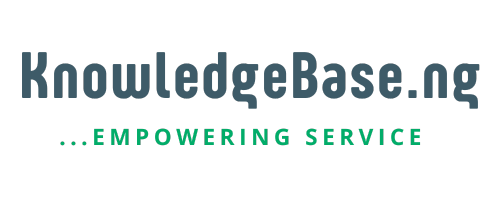Goal setting is a powerful tool that can significantly enhance productivity and drive success in any professional setting. In the public service sector, where efficiency, accountability, and delivering impactful outcomes are paramount, setting clear goals becomes even more crucial. In this article, we will explore the power of goal setting in public service productivity and how it can empower public servants to excel in their roles.
- Clarity and Focus: Setting goals provides clarity and focus in public service work. When you have well-defined goals, you know exactly what you want to achieve and can direct your efforts accordingly. This clarity helps eliminate distractions and enables you to prioritize tasks that align with your goals, making your work more purposeful and efficient.
- Motivation and Engagement: Goals serve as powerful motivators for public servants. By setting challenging yet attainable goals, you create a sense of purpose and excitement about your work. The pursuit of these goals keeps you engaged, energized, and committed to delivering high-quality results. When you are motivated, productivity naturally increases as you strive to achieve the desired outcomes.
- Accountability and Measurement: Goals provide a framework for accountability and measurement. When you set specific, measurable goals, you can track your progress and evaluate your performance. This accountability encourages you to take ownership of your work and ensures that you are consistently striving to meet or exceed your targets. Regularly assessing your progress against your goals allows you to make adjustments and stay on track.
- Prioritization and Time Management: Goal setting helps public servants prioritize their tasks and manage their time effectively. When you have clear goals, you can identify the most important and impactful tasks that contribute to achieving those goals. This enables you to allocate your time and resources accordingly, ensuring that you are focusing on the activities that drive progress and yield the desired outcomes.
- Collaboration and Alignment: Goal setting promotes collaboration and alignment within public service organizations. When teams share common goals, they can work together towards a shared vision. Collaborative goal setting encourages communication, coordination, and synergy among team members. By aligning individual goals with organizational objectives, public servants can contribute more effectively to the collective success of their organization.
- Continuous Improvement and Professional Development: Setting goals fosters a culture of continuous improvement and professional development in the public service. As public servants strive to achieve their goals, they identify areas for growth and seek opportunities to enhance their knowledge and skills. This commitment to self-improvement not only drives productivity but also ensures that public servants remain adaptable, innovative, and well-equipped to tackle evolving challenges.
- Adaptability and Resilience: Goals provide a framework for adaptability and resilience in the face of changing circumstances. In the dynamic public service landscape, unexpected challenges and shifting priorities are common. By setting flexible goals that can be adjusted as needed, public servants can respond effectively to unforeseen circumstances, adapt their strategies, and maintain focus on the desired outcomes.
Goal setting is a powerful tool that empowers public servants to maximize their productivity and deliver impactful outcomes in the public service sector. By providing clarity, motivation, accountability, and focus, goals serve as catalysts for success. Embrace the power of goal setting, establish clear objectives, and witness the transformation in your productivity, engagement, and overall effectiveness as a public servant. Let your goals propel you towards excellence in serving the public and making a positive difference in your community.

